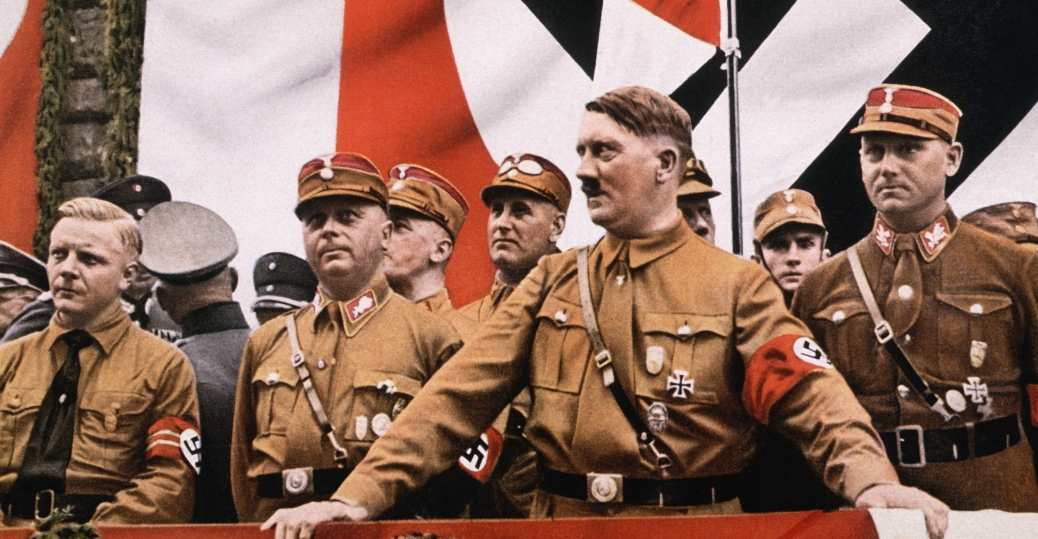
Views: 504
Obit scribblers are calling John McCain a war “hero.” Well, I have to concede that unlike so many warmongering chickenhawks such as Karl Rove, Paul Wolfowitz, Robert Kagan and most other neocons, McCain did actually serve in the military. But the same could be said for nearly all top Nazis including Hitler and Goering; they fought in a war and they loved war. They were destructive persons who learned nothing positive from their military experience.
Of course, few of the pundits and politicians who are eulogizing McCain would wish to include Nazis in their hall of fame, nor would most of them care to designate most neocons as anything less than patriots. So what is it that might qualify someone as a hero, or as a war criminal? Having been in the military, I sometimes think about that. These are some thoughts that come to mind.
Heroism is sort of like morality, it’s usually defined by the powers that be. And a lot of it has to do with being in the right place at the right time. An example of that would be the five Marines in the famous photo of the flag-raising on Iwo Jima. What made them more heroic than the many thousands of other GIs who fought on that and other islands in the Pacific, you might ask. And the answer is: time and place, plus a photographer to take their picture. So they were in a dramatic photo, and that was at a time when the government needed heroes to sell war bonds.
Military discipline is such that soldiers tend to do as told, even under fire. It’s a military axiom that soldiers fear their sergeants more then they fear the enemy’s bullets, and I think there’s a huge amount of truth in that. Even though a sergeant may not be particularly fearsome, there’s a huge power structure behind him. Individual soldiers become part of the military machine.
My friend Van Dale Todd was in Vietnam and came back with medals. He didn’t seem to consider himself a “hero.” What he emphasized was that he’d been through an experience. “You don’t know what it’s like to see your buddies die!” he often said, and then one night he killed himself in front of me. That was in San Francisco, in 1972. In his diary he’d written, “How could killing humans have been fun? Can God forgive me?”
Many Vietnam veterans suffered from PTSD. Many died before their time, some shortly after coming home, others years or even decades later, in their 30s or even in their 50s, not necessarily from physical injuries, but often from invisible damage they’d incurred during the war. I never met any who considered themselves “heroes.”
War criminals? Van never spoke of himself as being a “war criminal,” but he’d been trained to enjoy killing “the enemy,” and I think it bothered him immensely that he had enjoyed it. That, I think, was a major factor in his suicide. Certainly not the only factor. He took part in antiwar actions, and it shocked him to find nobody representing the power structure (news reporters or judges) would hear what he had to say. Of course, the corporate media makes a big show of honoring military personnel and veterans — but only as long as we go along with the bullshit, buy into their narrative and regurgitate propaganda. During the Vietnam War, media pundits used to tell us that the U.S. was there to defend democracy, and to back it up they’d say, “Ask a GI!” implying that people who’d been in the military believed in the war and would speak in support of it. Well, you probably know the rest of that story.
I often think of the characters in the Iliad and the Odyssey, wondering how those guys could be considered heroes. Socrates apparently thought they were; he held Achilles up as an inspiring example of a man who stood by his principles. That strikes me as really strange. In my view, Achilles was the archetypal spoiled brat who just wanted to have his own way. Then there was Odysseus, a notorious liar, who got tangled up in his own lies, and that’s basically what brought about the loss of his ships and the deaths of his crews on the way back to Ithaca. The leader of it all was King Agamemnon, a rather poor general, also a poor father who sacrificed his own daughter, and on returning to his home at the end of the war he was killed by his wife, which is about what he deserved. Those “heroes” were made of rather poor stuff, and a couple of their gods, Zeus and Athena, both of them deceitful schemers, weren’t too great either. The only person in the Iliad who comes off as genuinely heroic is Hector. It’s interesting that Homer, presumably a Greek himself, would present their enemy’s champion and other Trojans as being about the only decent persons in the whole story.
Achilles, Odysseus, Agamemnon and all the rest of them. Those were the men who fought the Trojan War, the elite officer class, that is. Homer called them heroes and sang their praises, but tongue in cheek, while carefully letting us know who those guys really were.
Originally published on 2018-08-29
About the author: Daniel Borgstrom is a child of the 1950s who joined the US Marine Corps (1959-1963), naively believing he was helping to defend our freedoms. Today he’s an antiwar activist and also a fan of film noir.
Source: Dissident Voice
Origins of images: Facebook, Twitter, Wikimedia, Wikipedia, Flickr, Google, Imageinjection & Pinterest.
Read our Disclaimer/Legal Statement!
Donate to Support Us
We would like to ask you to consider a small donation to help our team keep working. We accept no advertising and rely only on you, our readers, to keep us digging the truth on history, global politics and international relations.
FOLLOW US ON OUR SOCIAL PLATFORMS










